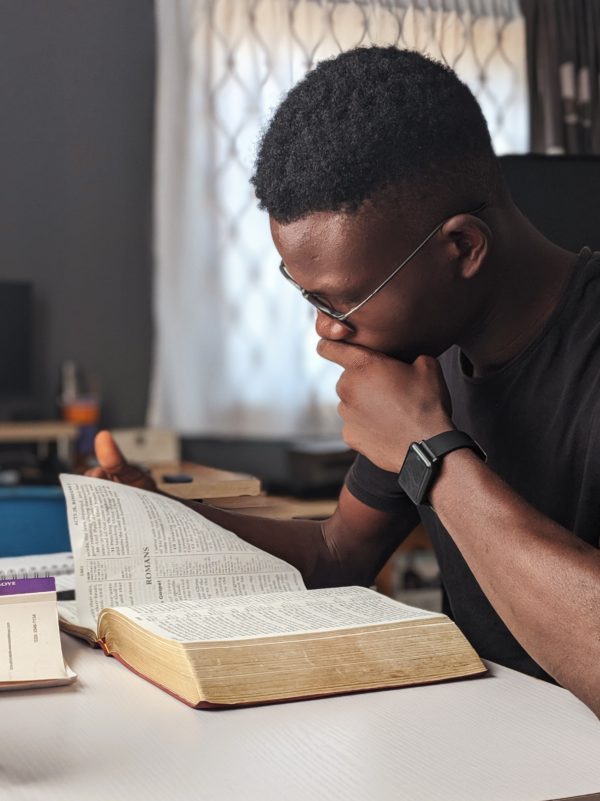
As the nation quickly approaches the election of new leaders, African-Americans face political choices that are even more complex than those of the 2016 election. This predicament is even more complicated for the nearly 80% of African-Americans who identify as Christian.
While the nation remains divided on issues of social justice and moral ethics, some accuse Conservative Black Christians of having convictions that are outdated and bigoted. However, history demonstrates the centrality of the Black church in the fight for social justice from Nat Turner’s rebellion, to the Civil Rights Movements of the ’50s and ’60s. Even today, research demonstrates that African-Americans are far more likely than other races to uphold traditional interpretations of Scripture involving same-sex marriage while advocating for more comprehensive legislation concerning prison reform and government aid. It is no secret that African-Americans have espoused the Democratic party for half a century with much chagrin. Still, the question remains: How should African-Americans vote their interests without divorcing their religious commitments from their social convictions?
It seems there are no easy answers. African-Americans are no longer the monolithic political group that needed freedom from slavery and equal rights. The needs of the Black community are increasingly nuanced and complex as income and educational attainment rise. Much of this affects the way they practice their faith and how it influences their politics.
“No one sin is greater than another,” says Lauren Walker, a liberal Catholic from Matteson. “Most of my sins are protected by law… However, not all people believe the same things as me [and] having my beliefs does not equate to me, advocating against others living their truth.” This is a prevailing ideology amongst today’s liberal Christians, religion consists of principles by which they should guide their personal lives. They tend to believe their convictions should not be forced on others through legislation. Still, among liberal Black Christians, there is a spectrum of thought that ranges from full-on socialism to those who are socially more progressive while being more conservative fiscally.
African-Americans who straddle the middle often identify as Independent. “I joke that I am a liberal Republican or conservative Democrat,” says Roni Idom from Milwaukee. “Neither of the most popular parties holds all of my beliefs, and I know as a Christian, I can’t pledge my allegiance to either of those ideologies.” Politically Independent Christians like Roni often mirror the attitudes of Black Christians of days past who were socially conservative and fiscally liberal. A dedication to the classic interpretations of Scripture drives them to the ideologies promulgated within the Republican Party. At the same time, their emphasis toward Jesus’ preferential treatment of the poor draws them to Democratic circles. They fight an endless battle between what they know to be right and good within their religions, and what society says is good for all. Still, Black moderates vary along the spectrum, hoping for policies that create balance and equity. Shera Strange, a politically moderate Christian from the South Side, says, “I believe in less government, but I also believe in the unfairness of this government and its various systems and agencies.” She also understands the need for systems that will support America’s most vulnerable populations but believes that life should not be perpetually sustained through the government’s use of government aid.
Black conservatives, like Travis Rayes from Aurora, logically divorce the black agenda from their religious convictions as they practice their political rights. “When Christ saved me, I came to the conclusion that I’m created in the image of God. Yes, I’m Black, but before [my culture], all that matters is that I do what the Word of God says. [When I vote], all I do is reconcile what the Word of God says and apply it to my life,” says Rayes. While he identifies as a Republican, he did not vote for Donald Trump, concluding the president not to be conservative enough. Still, he feels that conservatives are not well represented in the arts and media, believing that to be the cause of the caricatures of Uncle Toms against Black conservatives. He acknowledges that while conservative and Christian are not synonymous, the media’s attack on conservatism “feels like a soft attack on Christianity.” For Black Christian conservatives like him, it is most important to submit all identities and agendas to the authority of the Bible in deciphering what is best for the nation, there finding the best solutions facing the country today.
Ultimately, Black Christians are encouraged to vote by following their conscience as dictated by the religion, and within the best interest of people. However, it seems that today’s Black Christians may differ concerning the order in which they place the two priorities. Liberal to moderate Black Christians tend to emphasize legislating according to the trends of the current society, while more moderate to conservative Christians contend that the principles of the Bible are beneficial for every person, regardless of their faith, race, sex, or sexuality. It seems the answer is not to divorce one identity from the other but to use Blackness as the arena in which their politics and spirituality are applied.
Sabrina L. Catlett, Contributing Writer


